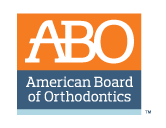Year-End Insurance Reminder
October 3rd, 2017

Now that October is upon us, Dr. R. William Barnard and Dr. Nia Jones and our team at R. William Barnard Orthodontics wanted to send you a friendly reminder to schedule your orthodontic appointment prior to the end of the year to take full advantage of any flex spend, health savings, or insurance benefits that you may have.
The end of the year is always a busy time so make your appointment now so you don’t lose your available benefits! Give us a call today!
Best Tips to Make Your Teeth Look Whiter
September 26th, 2017

Your teeth were once naturally white and bright. Wouldn't it be great to keep them that way all of your life? Unfortunately, everyday living can dim our smiles. Food, coffee, some juices, and soft drinks can stain your teeth. Poor brushing and flossing can also leave tooth stains. Injuries to teeth or gums can cause some yellowing as well, and in some cases, medicines can discolor teeth.
So, you may need some extra help to maintain or restore your teeth's natural beauty. Here are some of the best ways to whiten your teeth:
1. Reduce additional staining by drinking with a straw or cutting back on coffee and soft drinks.
2. Brush and floss every day.
3. Try a whitening toothpaste or mouthwash.
4. Visit our office for teeth cleaning and an exam every six months.
We can also help you whiten your teeth with in-office professional teeth whitening at our Omaha office. These whitening products are much more effective than whiteners you can buy at the store and are completely safe. Since they're stronger, application by a member of our team is essential to achieve the best results.
Some teeth can resist bleaching. If that's the case, we can try several techniques:
- Deep bleaching that applies whitening agents over several visits.
- Veneers and bonds that cover existing stains with a whiter, brighter surface.
- Laser whitening that uses light to clean stubborn stains off teeth.
Take Care!
You may come across “bleaching stations” in shopping malls or at fairs. Avoid using these as the so-called whitening techniques can irritate your teeth and gums, leaving them highly sensitive to pain. Note too, that the operators of these whitening stands will make customers apply the bleach themselves, to avoid charges of practicing without a license. That should serve as a red flag and a caution to seek trained professionals, like Dr. R. William Barnard and Dr. Nia Jones, instead.
I chipped a tooth. What can I do?
September 19th, 2017

You just crunched down on a piece of hard food when you suddenly realize there is something hard still in your mouth. Your nightmare is confirmed when you retrieve a piece of your tooth from your mouth. You chipped your tooth; now what?
Obviously, the first thing you need to do is call our Omaha office. While we make every effort to see emergent cases immediately, you may have to wait a day or so before you can see Dr. R. William Barnard and Dr. Nia Jones. Luckily, it’s easy to take care of your chipped tooth while you wait.
How to Take Care of a Chipped
The last thing you want is for the tooth to become infected or break even more. Let’s look at a few things you can do:
- If the chipped tooth is causing you pain take an over-the-counter pain medication, like Tylenol. Always follow the directions on the label.
- You should also rinse your mouth with lukewarm saltwater, as this will help prevent an infection from setting in.
- If your chipped tooth has a sharp edge, cover it up with a piece of wax to prevent it from cutting you cheek, tongue, or lip.
- If you have to eat, make sure you eat soft foods and don’t bite down on the chipped or broken tooth.
Treatment Options for a Chipped Tooth
- Dental Filling and Bonding – If you only have a small chip in your tooth, Dr. R. William Barnard and Dr. Nia Jones will probably fix it with a filling. If it is a front tooth, we may bond the tooth using a tooth-colored compound.
- Dental Crown or Cap – If you broke a large piece of your tooth, we may grind the remaining part of your tooth and put a crown or cap on it.
- Dental Veneers – If you chipped or broke your front tooth then choosing a dental veneer may be your best choice. It will make your tooth look completely normal.
- Root Canal – If you cracked your tooth and the center (pulp) of the tooth is exposed and infected, you will need a root canal. If the center of your tooth is exposed, it becomes vulnerable to bacteria that will cause your tooth to abscess.
Chipping or breaking your tooth is never a good thing, and you should always call our Omaha office right away. The sooner you get your tooth repaired the less likely you are to have any problems with it.
What is a water pick and do I need one?
September 12th, 2017

Water picks, sometimes called “oral irrigators,” make an excellent addition to your regular home care regimen of brushing and flossing. Especially helpful to those who suffer from periodontal disease and those patients of ours undergoing orthodontic treatment with full-bracketed braces, water picks use powerful tiny bursts of water to dislodge food scraps, bacteria, and other debris nestled in the crevices of your mouth. Children undergoing orthodontic treatment may find using a water pick is beneficial if their toothbrush bristles tend to get caught on their wires or brackets.
When you use a water pick, you’re not only dislodging any particles or debris and bacteria you might have missed when brushing, you are also gently massaging the gums, which helps promote blood flow in the gums and keeps them healthy. While water picks are an excellent addition to your daily fight against gingivitis and other periodontal diseases, they are incapable of fully removing plaque, which is why Dr. R. William Barnard and Dr. Nia Jones and our team at R. William Barnard Orthodontics want to remind you to keep brushing and flossing every day.
If you have sensitive teeth or gums and find it uncomfortable to floss daily, water picks are a good alternative to reduce discomfort while effectively cleaning between teeth. Diabetics sometimes prefer water picks to flossing because they don't cause bleeding of the gums, which can be a problem with floss. If you have a permanent bridge, crowns, or other dental restoration, you may find that a water pick helps you keep the area around the restorations clean.
So how do you choose the right water pick?
Water picks are available for home or portable use. The home versions tend to be larger and use standard electrical outlets, while portable models use batteries. Aside from the size difference, they work in the same manner, both using pulsating water streams. A more crucial difference between water picks is the ability to adjust the pressure. Most home models will let you choose from several pressure settings, depending on how sensitive your teeth and gums are. Most portable models have only one pressure setting. If you want to use mouthwash or a dental rinse in your water pick, check the label first; some models suggest using water only.
Please give us a call at our Omaha office if you have any questions about water picks, or ask Dr. R. William Barnard and Dr. Nia Jones during your next visit!










